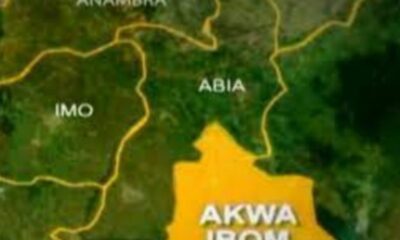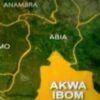News
US Flags Transparency Gaps In Nigeria’s Food Duty Waiver, Says Policy Had Little Impact

The United States has stated that lack of transparency in Nigeria’s implementation of the temporary suspension of import duty on certain agricultural products, to curb the acceleration of the country’s inflation, led to the limited impact of the policy.
In its “2025 Nigeria Investment Climate Statement on Nigeria,” released by the US Department of State, America also stated that regulatory uncertainty as well as transmission failures continued to dog Nigeria’s power sector, turning many Nigerians to generator users.
The US Investment Climate Statement (ICS) is an annual report that provides US investors, policymakers, and businesses with a detailed assessment of the investment conditions in over 160 countries and economies worldwide. It examines the legal, regulatory, political, and economic factors that can affect foreign direct investment and is widely used as a reference by American companies considering entering or expanding in a market.
According to the report, Nigeria’s economy experienced significant headwinds in 2024, dropping from Africa’s second to fourth largest economy by Gross Domestic Product (GDP), partially the result of the government’s reforms, including a foreign exchange liberalisation and the fuel-subsidy removal, instituted by President Bola Tinubu.
In July 2024, the Nigerian government announced what it said was a bold intervention to ease the pressure of rising food prices. The plan was to suspend the payment of duties, tariffs, and taxes on the importation of key agricultural staples, such as maize, husked brown rice, wheat, beans, and cowpeas.
Framed as a 150-day duty-free import window, the measure was to run from July 15 through December 31, 2024, and was expected to flood the market with cheaper food supplies, thereby softening the country’s stubborn food inflation.
Although on paper, the initiative was ambitious and promising, in practice, it faltered almost immediately, with implementation delays meaning that the suspension did not take off as scheduled.
Beyond policy bottlenecks, economic realities further undermined the scheme. The suspension of agricultural import duties was intended as a short bridge over a food crisis; instead, it became a textbook case of how bureaucracy and weak implementation can turn even well-intentioned policies into empty declarations.
The report released this September stated, “Nigeria’s trade regime is protectionist in key areas. High tariffs and prohibitions on many import items have the aim (if not the effect) of spurring domestic agricultural and manufacturing sector growth. The government provides tax incentives and customs duty exemptions for pioneer industries including in the renewable energy sector.
“In July 2024, in response to high food price inflation, the government temporarily and partially lifted import duties for select agricultural commodities, including: unmilled brown rice, sorghum, millet, corn, wheat, and beans.
“However, the policy had limited to no effect on food prices or increased food imports, as the lack of transparency in implementation of the temporary lifting of the duties dulled their impact.”
It said inflation, which exacerbated food security concerns, was fuelled by a sharp increase in the costs of wheat, rice, other staple cereals, and fertiliser.
But while Tinubu’s overall economic reforms led to modest growth, including the stabilisation of the naira’s exchange rate at around N1,500 to the US dollar, fuel prices remaining steady around $0.67 per litre, as well as issuance of first Eurobond since 2022, and a three-year high external reserves, the report stated that the reforms had also led volatility of the naira.
Quoting the World Bank, the US report stated that the number of Nigerians living below the national poverty line rose to 56 per cent in 2024, up from 49 per cent in 2023, equating to an estimated 20 million additional people living in poverty.
Besides, the report stated that corruption remained a serious obstacle to Nigeria’s economic growth and this was often cited by domestic and foreign investors as a significant barrier to doing business.
It stated, “Reflecting a slight improvement, Nigeria ranked 140 out of 180 countries in Transparency International’s 2024 Corruption Perceptions Index, compared to its previous rank of 145. Among other complaints, businesses report that corruption by customs and port officials often leads to extended delays in port clearance processes and to other issues, importing goods.”
On electricity supply, the report said Nigeria’s underdeveloped and unreliable power sector was a bottleneck to broad-based economic development, forced businesses to generate a significant portion of their own electricity.
Many of these businesses, according to the report, relied on generators powered by comparatively more expensive diesel to run their operations, further contributing to rising prices.
“Reform of Nigeria’s power sector is ongoing, but investor confidence continues to be weakened by regulatory uncertainty, deficient generation and transmission infrastructure, insufficient revenue collection, and a limited domestic natural gas supply chain,” the US State Department stated.
The report stated that security was a concern to investors in Nigeria due to violent crime, kidnapping for ransom, infrastructure vandalism, and terrorism in certain parts of the country.
It said while criminal attacks on oil and gas infrastructure in the Niger Delta region that restricted oil production had eased, high levels of illegal bunkering and oil theft persisted.
It stated that while the process of starting a business; acquiring construction permits and electricity; registering property, and enforcing contracts had eased, “Nigeria remains a difficult place to do business.”
According to the report, companies still suffer from: regulatory uncertainty; policy inconsistency; poor infrastructure; corruption at multiple levels of government, and customs inconsistency and inefficiency.
“These many challenges are reflected in the fact that Nigeria’s leading trade indices lag behind regional averages,” it pointed out.
The US stated that the Nigerian government implemented a destination inspection scheme whereby all inspections occured upon arrival into Nigeria, rather than at the ports of origin.
It said, “The NCS still carries out 100 per cent cargo examinations, and shipments take more (sometimes significantly more) than 20 days to clear through the process. In addition to creating significant delays and additional fees for security and storage for items awaiting customs clearance, NCS’s continued reliance on largely manual customs processes creates opportunities for significant variation, individual discretion, and corruption in the application of customs regulations.”
The report said remittances contributed significantly to Nigeria’s foreign exchange inflows, often outweighing total foreign investment flows, as Nigerians in diaspora remitted an estimated $23.4 billion in 2024, representing 6.4 per cent of Gross Domestic Product (GDP).
However, it stated that a sizable amount of the remittances remained outside Nigeria in foreign bank accounts.
Aside from Nigeria’s food duty waiver, which hardly had any impact, others that had followed the same pattern included the policies on the Liquefied Petroleum Gas (LPG) and pharmaceutical products, the report said.
The government announced the removal of import duty and Value Added Tax (VAT) on LPG and LPG equipment recently, hoping to encourage wider adoption of cooking gas and bring down household energy costs.
On paper, that should have made cylinders and gas refills more affordable. In reality, prices kept rising as households continued to pay more for cooking gas despite the waiver.
The same can be said of pharmaceutical products. Duties on certain essential medicines and medical equipment were relaxed or completely waived, part of the government’s effort to improve healthcare access. Yet drug prices did not fall in any significant way.












